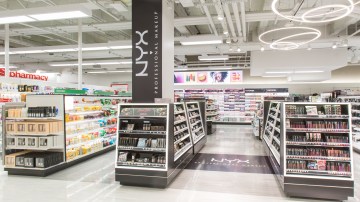Artificial intelligence has been steadily transforming the online experience for L’Occitane en Provence.
Most recently, the French skin-care brand integrated machine learning into its website, allowing it to use customer data to tailor the layout of the web page shown based on location, local time and previous purchases. The result: a 3 percent increase in revenue per visit, per customer and a 4 percent uplift in average revenue per customer across mobile and desktop. In the U.K., its updated website saw a 159 percent increase in mobile conversions. L’Occitane doesn’t break out specific sales figures.
Across fashion and beauty, online shopping is getting smarter thanks to a slurry of AI algorithms: Diane von Furstenberg, ColourPop, LeSportsac and Tumi have recently relaunched websites to incorporate machine learning and personalization algorithms. The result is that brands can create better online experiences that are adaptable to real-time consumer behavior, which in turn can increase the likelihood customers will buy something, in addition to the amount of money generated each time a customer visits the website.
Working with AI company Qubit, L’Occitane created content specific to the needs of its customers. For example, the brand’s Brazilian website saw there were many people browsing the website at night, and because of this, they were shown products designed to help people sleep. It is now the third-most popular experience based on consumer engagement in Brazil and has been replicated across the other international websites, including the U.K.
“The world is shifting online, so you have to look at every opportunity not only to capture some sales, but also loyalty and lifetime value,” said Leah Anathan, Qubit’s chief marketing officer, adding that customers are shown something different and uniquely suited to them based on their location, local time and purchasing behavior.
One way L’Occitane tried to build loyalty was by anticipating customer needs. Based on previous purchase history, a returning customer might see a suggestion for replenishing, depending on how long it usually takes for the product to run out. The website also incentivized customers to purchase sooner by showing them when a product was running low on inventory. Giving a sense of urgency to a purchase helps the brand connect faster to customers and save them time, but it’s a delicate balance, Anathan said.
“Luxury operates differently from other [categories] because you want to deliver personalized experiences but you still want to retain the authenticity and elegance of the brand. So messages in your face or without the right tone or too many messages about sales start to worry those in luxury because it might affect the brand experience,” she said.
L’Occitane has been working with Qubit since 2015, but this is not the brand’s first time using artificial intelligence online. The 42-year-old brand previously optimized its websites for different international customers after noticing a large discrepancy in the online conversion rate during checkout between different countries. The brand worked with ContentSquare to use AI to analyze the behavior of consumers through scrolling and mouse clicks to discover the pain points for website users. For instance, Russian customers hesitated 13 seconds longer on the delivery page than the international average because it took longer for them to find the difficult-to-locate address modification button, a function Russians use more than any other country, according to ContentSquare. As a result, L’Occitane adapted its website for those consumers.
The company also worked with AI-based user experience Eptica on automated and augmented online conversations for customer service through email, social networks, self-service and chat. Using a customer database, L’Occitane provided employees with a comprehensive vision of the customer they were helping, including a history of purchases, requests and previous communications. Natural language processing, in particular, helped L’Occitane computers to analyze language so conversations could be sorted automatically and prioritized depending on the tone. This technology has been deployed on 17 international websites since 2012, according to Eptica.
“If a retail brand does not shift to a strong digital strategy that builds loyalty and personalized experiences, they can get into trouble, so it’s creating a compelling [series of developments] in this area,” Anathan said.



